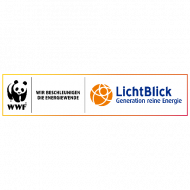rp18_WWF & LichtBlick

The effects of climate crisis have already reached Germany. Heavy rain, unusually warm summers or mid-range mountains with almost no snow are just some of the phenomena we are going to cope with in the future.
Climate science has proved that the climate crisis is manmade. Since the Paris Agreement in 2015, there is also a political consensus. It has been decided to contain global warming to well below 2 degrees Celsius above pre-industrial levels to mitigate global climate changes.
But still there is climate change denial partly from powerful lobby groups, mainly trying to hold back climate protection and energy transition measurements. The diversity of direct communication via social media we have today seems to be perfect to transport those kinds of disinformation campaigns set up by climate denial groups.
German polls show that up to 14 percent of the respondents say manmade climate change is not existent. Therefore, quick action to mitigate it would not be necessary.
How do disinformation campaigns tackling climate change actually work? What kinds of methods are used to challenge scientific facts on climate change in social media? Which role do people and organisations play, which role do algorithms play to spread misinformation? How can owners of such channels, how can we respond to that? This is what WWF and LichtBlick will discuss at re:publica.
Furthermore, we will hang large-sized pictures of nature phenomena and locations in Germany which are already affected by climate change. In cooperation with online radio detector.fm, we started a podcast showing the effects of climate change and the role of energy transition for mitigating the heating of the planet.